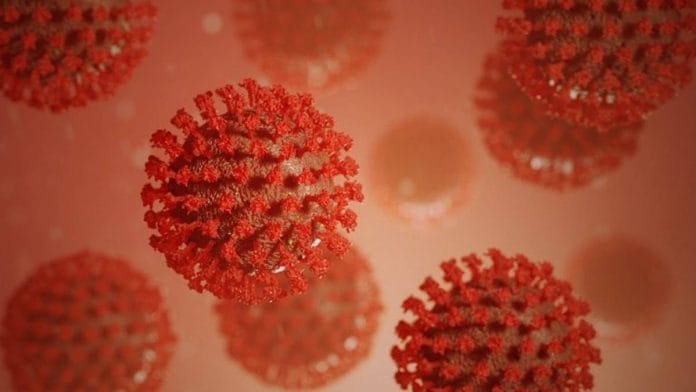New Delhi: South African researchers have identified a new SARS-CoV-2 variant called B.1.1.529, which has at least 32 mutations in the spike protein that are likely to lead to immune resistance and faster spread.
The mutation raised “serious” concerns after it seemed to dominate all infections in South Africa in less than two weeks, amid a fresh spike in Covid-19 cases in the country.
“Here is a mutation variant of serious concern,” Health Minister Joe Phaahla said at a media event, according to a Bloomberg report. “We were hopeful that we might have a longer break in between waves — possibly that it would hold off to late December or even next year January.”
Tulio de Oliveira, director of South Africa’s Centre for Epidemic Response and Innovation, also put out a Twitter thread on the issue.
“This new variant is really worrisome at the mutational level. South Africa and Africa will need support (financial, public health, scientific) to control it so it does not spread in the world. Our poor and deprived population can not be in lockdown without financial support,” de Oliveira said.
Busy day on B.1.1.529 – a variant of great concern – The world should provide support to South Africa and Africa and not discriminate or isolate it! By protecting and supporting it, we will protect the world! A plea for billionaires and financial institutions. 1/8 tweets
— Tulio de Oliveira (@Tuliodna) November 25, 2021
So far, no sequence of the variant has been detected in India. However, the Indian government has sounded alarm on the situation.
According to Vinod Scaria, a researcher at the Council Of Scientific And Industrial Research-Institute of Genomics and Integrative Biology in New Delhi, the new variant is concerning because it has as many as 32 mutations — a number of which are linked to immune escape and increased transmissibility.
On Twitter, Scaria listed all the mutations, including A67V, T95I, G339D, S371L, S373P, N440K, N501Y, D614G, P681H. Some of these — such as N440K, N501Y and D614G — have already been detected in previous SARS-CoV-2 variants.
What do we know about the B.1.1.529 variant of SARS-CoV-2 with a very large number of mutations
An updated thread on emerging evidence. pic.twitter.com/D8nzB6ssgg
— Vinod Scaria (@vinodscaria) November 25, 2021
Scaria also pointed out that at least three mutations possibly suggest better cell entry, translating to possible higher transmissibility.
Both Scaria and de Oliveira noted that some of the mutations actually make it easier to detect this variant using the qPCR test, a variant of the routine RT-PCR test.
Also read: Argentinian woman naturally cured of HIV, is second such patient
Situation in India
In a letter addressed to states and union territories Thursday, Health Secretary Rajesh Bhushan said multiple cases of the B.1.1.529 variant have been reported in Botswana (three cases), South Africa (six) and Hong Kong (one).
“This variant is reported to have a significantly high number of mutations, and thus, has serious public health implications for the country, in view of recently relaxed visa restrictions and opening up of international travel,” he wrote.
Bhushan added that all international travellers from ‘at risk’ countries should be subjected to rigorous screening and testing, in accordance with health ministry guidelines. The contacts of these international travellers will also be closely tracked and tested.
Samples of travellers turning positive will be sent for genome sequencing, so that necessary public health measures may be undertaken in case the presence of the variant is detected in India.
South Africa working on gaining better understanding
Meanwhile, de Oliveira said South Africa is working round the clock to understand effects of the variant on transmissibility, vaccines, re-infection, disease severity, and diagnostics.
“We do have funding for science, but South Africa and Africa need financial help to support their deprived population and health system,” he wrote.
He also appealed to American billionaires including Elon Musk, Jeff Bezos, Bill Gates and Warren Buffet to support Africa and South Africa financially to “control and extinguish variants”.
(Edited by Amit Upadhyaya)
Also read: WHO discusses new Covid variant with ‘unusual’ mutations in South Africa






